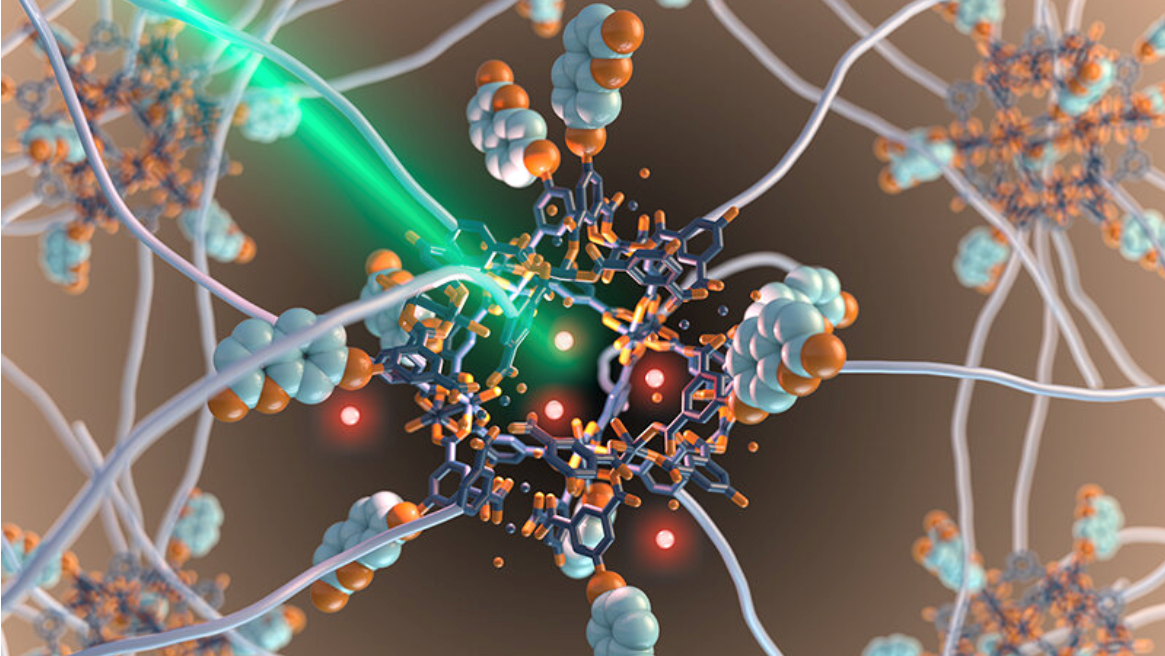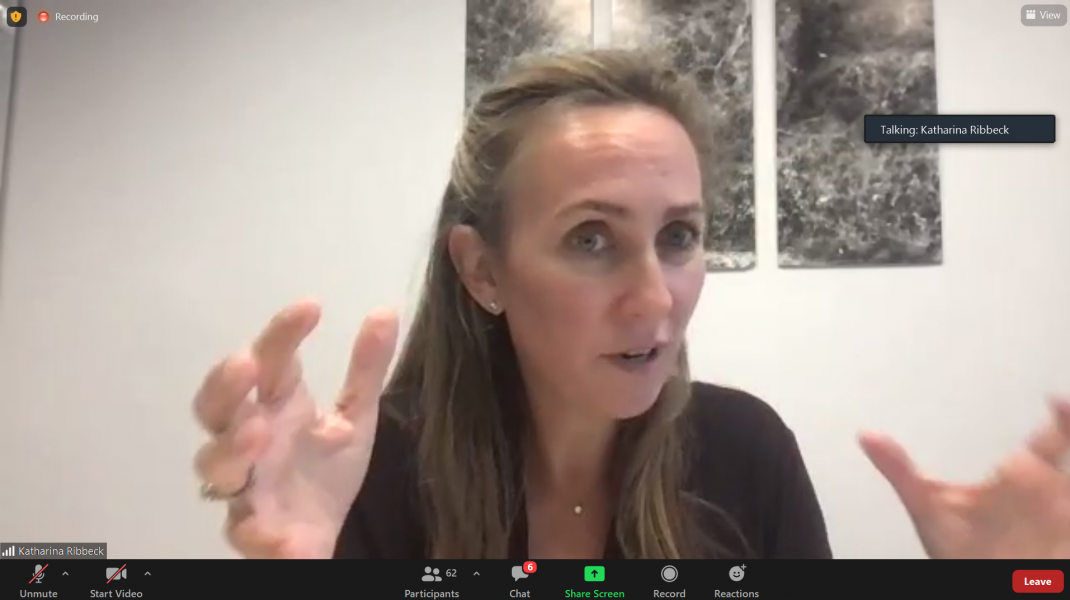Duke Soft Matter Symposium Attracts Worldwide Audience
Elizabeth Witherspoon
Duke Materials Initiative’s milestone event on polymer networks engages 300+ attendees from 16 nations

In another year of disrupted in-person conference travel due to the pandemic, the Duke Materials Initiative (DMI) hosted its second highly successful all-virtual scientific conference. The 2021 Duke Soft Matter Symposium: Polymer Networks from Design to Application, held October 4-5, welcomed over 300 attendees from 16 nations on four continents.
“I was very impressed by the level of attendance throughout the event, the thoughtful questions after the talks and the depth of the discussion after each session,” said Stefan Zauscher, director of DMI and a professor in Duke University’s Thomas Lord Department of Mechanical Engineering and Materials Science. “Many of my colleagues and friends attended, some from Europe.”
In fact, in addition to being widely dispersed across academic institutions in the U.S. and Europe, attendees also hailed from Brazil, India, China and even Kazakhstan. The speakers themselves represented eight universities.
The first speaker, Jian Ping Gong, an international leader in polymer networks, presented via Zoom from Hokkaido University, in Sapporo, Japan, a 13-hour time difference. Gong is a member of the National Science Foundation-funded Center for the Chemistry of Molecularly Optimized Networks (MONET), led by Stephen Craig, Duke University’s William T. Miller Distinguished Professor of Chemistry and one of the symposium organizers.
Craig, Zauscher and other organizers said the event exceeded their expectations, which was to highlight one of Duke University’s strengths in materials science and engineering—polymer network research—and to bring together researchers, both inside and outside of Duke, from three distinctly different niche areas of this research category to meet one another. These three niches ordinarily may not collaborate on specific projects, but they can benefit from knowing about each other’s work and make connections that bear fruit in the future, said Michael Rubinstein, one of the symposium organizers, leader of the Duke Soft Matter Center and the Aleksandar S. Vesic Distinguished Professor of Mechanical Engineering & Materials Science, Biomedical Engineering, Chemistry and Physics.

Three invited speaker sessions over the two days each focused on one of the three niches: “Molecular Design Principles,” “Non-Equilibrium Soft Matter in Biology” and “Biomaterials for Health.” A fourth session featured 13 postdoctoral fellows and PhD candidates presenting work from their respective Duke University labs for 10 minutes each. Finally, a diverse group of 19 graduate students from Duke and other universities, including one from the Indian Institute of Technology Bombay, presented research posters in Zoom breakout rooms.
“The event was terrific. I particularly enjoyed the open discussion segments,” wrote Felipe Quiroz, assistant professor of biomedical engineering at Georgia Institute of Technology and Emory University, who was also one of the symposium speakers and an active participant in many of the question-and-answer sessions following speaker talks. Quiroz is a 2013 PhD graduate in biomedical engineering from Duke University.
This event followed DMI’s all-virtual 2020 Hard Matter Workshop, the inaugural signature event for the faculty collaborative, which focuses on elevating and energizing the materials science and engineering ecosystem at Duke University through collaboration among researchers across the Pratt School of Engineering, Trinity College of Arts & Sciences, Duke School of Medicine and Nicholas School of the Environment. That event also hosted invited speakers and more than 300 attendees worldwide and focused on energy materials, metamaterials and quantum materials research.
Check the Duke Materials Initiative website for future posting of videos of speaker talks >>
